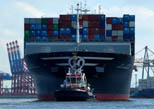Understanding Freight Costs in Trade Terms
When conducting international trade, understanding the trade terms is crucial to ensure smooth transactions. One essential aspect is shipping costs, which are included in the agreed trade terms. This means the cost of transporting goods from one party to another is factored into the total price, ensuring both parties are clear on the total expense involved.
There are several types of freight costs that may be included in trade terms, such as:
1. Total Freight Costs: This refers to all expenses related to shipping, including loading, unloading, and transportation fees.
2. Insurance Freight: This covers risks such as damage, loss, or theft during transit, ensuring the buyer is protected.
3. Port Costs: These include expenses like customs duties, taxes, and handling fees at the origin and destination ports.
4. Tare Freight: This is the cost of transporting empty containers or packaging.
5. Customs and Import Taxes: Additional fees may be applied depending on the destination country's regulations.
Understanding these terms helps buyers and sellers avoid disputes and ensures transparency in pricing. By carefully reviewing the trade terms, parties can make informed decisions and optimize their supply chain costs.
In conclusion, being aware of the specific freight costs included in trade terms is vital for successful international trade. By clearly defining and agreeing upon these costs, both parties can streamline their operations and achieve a win-win outcome. Always ensure to consult with professionals to interpret trade terms accurately and avoid any misunderstandings that could arise from unclear or ambiguous language.
